The Lebu are an ethnic group of Senegal, West Africa, living on the peninsula of Cap-Vert. The Lebu are primarily a fishing community, but they have a substantial business in construction supplies and real estate. They speak Lebu Wolof, which is closely related to Wolof proper but is not intelligible with it. Their political and spiritual capital is at Layene, situated in the Yoff neighborhood of northern Dakar. They have a religious sect and theocracy, the Layene, headquartered there.

Aubervilliers is a commune in the Seine-Saint-Denis department, Île-de-France region, northeastern suburbs of Paris, France. The inhabitants of the commune are known as Albertivillariens or Albertivillariennes.

Fatima-Zohra Imalayen, known by her pen name Assia Djebar, was an Algerian novelist, translator and filmmaker. Most of her works deal with obstacles faced by women, and she is noted for her feminist stance. She is "frequently associated with women's writing movements, her novels are clearly focused on the creation of a genealogy of Algerian women, and her political stance is virulently anti-patriarchal as much as it is anti-colonial." Djebar is considered to be one of North Africa's pre-eminent and most influential writers. She was elected to the Académie française on 16 June 2005, the first writer from the Maghreb to achieve such recognition. For the entire body of her work she was awarded the 1996 Neustadt International Prize for Literature. She was often named as a contender for the Nobel Prize for Literature.
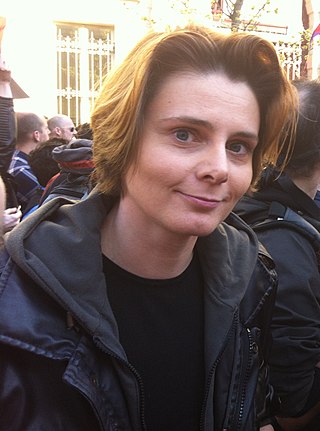
Caroline Fourest, is a French feminist writer, film director, journalist, radio presenter at France Culture, and editor of the magazine ProChoix. She was also a columnist for Charlie Hebdo, for Le Monde until 14 July 2012, and she joined Marianne in 2016.
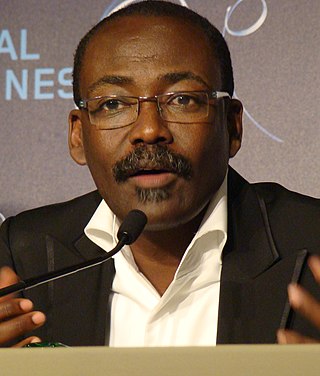
The Cinema of Chad is small though growing. The first film made in the country appears to have been 1958 John Huston adventure film The Roots of Heaven, filmed when the country was still a part of French Equatorial Africa. Documentary filmmaker Edouard Sailly made a series of shorts in the 1960s depicting daily life in the country. During this period there were a number of cinemas in the country, including in N'Djamena Le Normandie, Le Vogue, the Rio, the Étoile and the Shéherazade, and also the Rex in Sarh, the Logone in Moundou and the Ciné Chachati in Abéché. The film industry suffered severely in the 1970s-80s as Chad became engulfed in a series of civil wars and foreign military interventions; film production stopped, and all the cinemas in Chad closed down. Following the ousting of dictator Hissène Habré by Idriss Déby in 1990 the situation in the country stabilised somewhat, allowing the development of a nascent film industry, most notably with the work of directors Mahamat-Saleh Haroun, Issa Serge Coelo and Abakar Chene Massar. Mahamat-Saleh Haroun has won awards at the Panafrican Film and Television Festival of Ouagadougou, Venice International Film Festival and the Cannes Film Festival. In January 2011 Le Normandie in N'Djamena, said to now be the only cinema in Chad, re-opened with government support.

Alain Cavalier is a French film director.

Oksana Shachko was a Ukrainian artist and activist. Along with Anna Hutsol and Alexandra Shevchenko, she was one of the founders of the radical feminist activist group Femen, which publicly demonstrates in various countries against sexual exploitation, income inequality, and policies of the Roman Catholic Church, among other causes.

Saint-Denis is a commune in the northern suburbs of Paris, France. It is located 9.4 km (5.8 mi) from the centre of Paris. Saint-Denis is the second most populated suburb of Paris, with a population of 113,116 at the 2020 census. It is a subprefecture of the department of Seine-Saint-Denis, being the seat of the arrondissement of Saint-Denis. It is also part of the Métropole du Grand Paris.
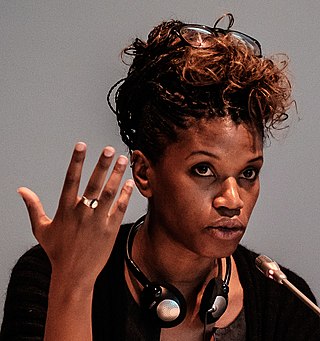
Rama Thiaw is a Senegalese filmmaker and screenwriter. She is known for her 2009 documentary Boul Fallé, la Voie de la lutte and her most recent documentary The Revolution Won’t be Televised (2016).
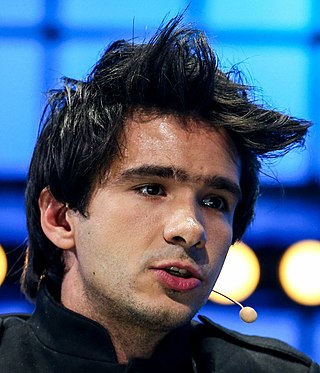
Juan Branco, full name JuanPauloBranco Lopez, born on August 26 in Estepona, is a French-Spanish lawyer, writer, journalist and political activist.
Olivier Barlet is a French journalist, translator, film critic and researcher on African cinema and its diasporas.
Yvette Duval was a Moroccan-born French historian who specialised in North Africa during Antiquity and the Early African church during Late antiquity.

Amina Zoubir is a contemporary artist, filmmaker and performer from Algiers, Algeria. She is known as a feminist performer through video-actions entitled Take your place, which she directed in 2012 during the 50th anniversary of Algerian independence, aiming to question gender issues and conditions of women in Algerian society. She has worked with different art mediums such as sculpture, drawing, installation art, performance and video art. Her work relates to notions of body language in specific spaces of North Africa territories.
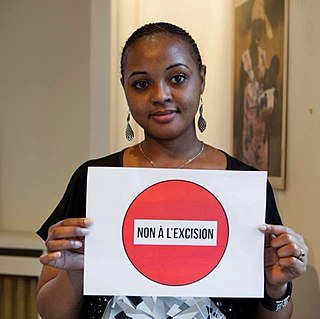
Diaryatou Bah is a feminist and secular activist from Guinea.
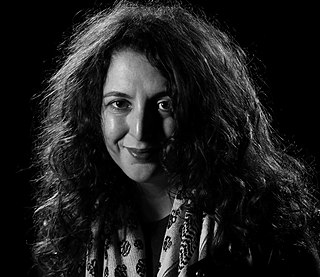
Sonia Terrab is a Moroccan writer, filmmaker, and activist. Her work revolves around the status of women in Moroccan society, social hypocrisy regarding the body and sexuality, and Moroccan youth.
The 2022–23 Coupe de France preliminary rounds, Paris-Île-de-France is the qualifying competition to decide which teams from the leagues of the Paris-Île-de-France region of France take part in the main competition from the seventh round.
Ilyes Housni is a French professional footballer plays as a forward for Ligue 1 club Paris Saint-Germain.
The Institut des mondes africains (IMAF) is a French academic mixed and interdisciplinary research unit for African studies, in which the national reseach organisation CNRS, three other French national academic research institutions and two universities collaborate. They are the Institut de recherche pour le développement, the École pratique des hautes études (EPHE), the École des hautes études en sciences sociales and the Aix-Marseille University and the Pantheon-Sorbonne University.

Safia Otokoré is a French politician and member of the Socialist Party.
Michel Sitbon is a French writer, publisher and journalist. He founded many collectives and associations defending freedom of speech, gender equality, right of asylum or the legalization of cannabis. He is also one of the co-founders of the Nuit Rwandaise, a review of experts for the truth about the Rwanda genocide.













